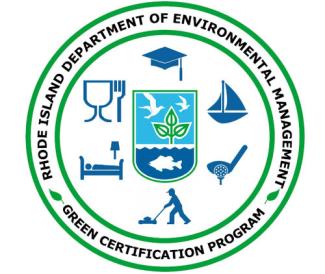Green Cleaning Pollution Prevention Program

Cleaning products are necessary for maintaining healthy conditions in homes and in the workplace. Cleaning provides obvious aesthetic benefits such as the removal of dust, allergens, and infectious agents. Cleaning is crucial to maintaining a healthy indoor environment. However, it is important to note that cleaning products can present several health and environmental concerns. Many cleaning products contain chemicals associated with eye, skin, or respiratory irritation, or other human health issues. They may also cause headaches and other health problems, including cancer. Some cleaning products release dangerous chemicals into the indoor air. These are called volatile organic compounds (VOCs). VOCs and other chemicals released when using cleaning supplies can contribute to chronic respiratory problems, allergic reactions and headaches1. Studies are underway to assess how these chemicals affect people who have asthma and other respiratory illnesses. Past studies have linked exposure to chemicals from cleaning supplies to occupational asthma and other respiratory illnesses2.
Oftentimes, cleaners come in concentrated forms. Some of the concentrated commercial cleaning products are classified as hazardous. This creates potential human health and environmental risks if the products are handled, stored, or disposed of improperly. Using green cleaning products can help to reduce the human health and environmental concerns that comes along with cleaning. TheU.S. Environmental Protection Agency (EPA) has a program called Safer Choice that helps consumers, businesses, and purchasers find products that contain ingredients that are safer for human health and the environment.
To address the concern of the effects on human health from exposure to cleaning chemicals, the Rhode Island Department of Environmental Management (RIDEM), received an EPA grant in 2018 to proactively work with businesses and facilities to replace the use of conventional cleaners with greener safer alternatives. Additionally, the focus on cleaners turned to a focus on safe and effective disinfectant use during the COVID-19 pandemic. Disinfectants contain some of the same chemicals of concern found in conventional cleaners. Disinfectants are not cleaners. Disinfectants are registered antimicrobial pesticides. Disinfectants go through a registration process at EPA and are defined by the specific bacteria, viruses and fungi they can destroy or inhibit. EPA's website contains a list of disinfectants that are registered to kill the COVID-19 virus. The list is called the N-list. Most of the disinfectants listed on EPAs list have chemicals that can cause respiratory irritation and other human health side effects if they are used improperly. There has been a great deal of research by the Toxic Use Reduction Institute, as well as in EPA’s Design for the Environment Program (DFE) that has identified safer disinfectant alternatives.
RIDEM’s Green Cleaning Grant referenced above, has put considerable effort into providing outreach and training on safe disinfectant use. One of the ways this has been achieved is by creation of a user-friendly list of EPAs N-list of registered disinfectants which highlights safer alternativities, provides links to Safety Data Sheet (SDS) information on products, and highlights the various chemicals of concern found in the disinfectants. RIDEM’s list of EPA's N-list of registered disinfectants is found here.
Additionally, RIDEM has created a simple and effective training on safe disinfection and chemical safety in collaboration with the Rhode Island Committee on Occupational Safety and Health (RICOSH) and the Northeast Waste Management Officials Association (NEWMOA). This training has been implemented across 14 training sessions and 118 students. The training is available in Spanish, Portuguese, and Chinese.
